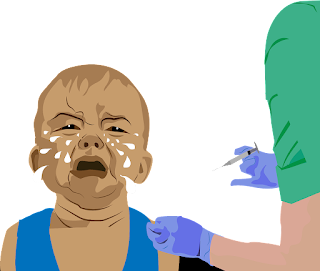Nurturing Healthy Growth: Essential Aspects of Child Health
Introduction
Child health is a paramount concern for parents and caregivers alike. Providing children with a solid foundation of good health sets them up for a thriving future. This article explores key aspects of child health, including nutrition, physical activity, immunizations, and mental well-being, emphasizing the importance of holistic care for children's overall well-being.
Nutrition
Proper nutrition is vital for children's growth and development. A balanced diet consisting of fruits, vegetables, whole grains, lean proteins, and dairy products ensures that children receive essential nutrients, vitamins, and minerals. Parents should encourage healthy eating habits, limit sugary snacks and beverages, and promote portion control to prevent childhood obesity and related health issues.
Physical Activity
Regular physical activity is crucial for children's physical and mental well-being. Engaging in age-appropriate activities such as running, biking, swimming, or team sports helps children develop strength, coordination, and cardiovascular fitness. Encouraging active play and limiting screen time promotes an active lifestyle and helps prevent sedentary behaviors.
Immunizations
 |
| immunizations |
Immunizations are a cornerstone of child health. Vaccines protect children from a range of preventable diseases, including measles, polio, and whooping cough. Following the recommended immunization schedule is essential to safeguard children's health and contribute to community immunity, preventing the spread of infectious diseases.
Mental Well-being
Children's mental health is equally important as their physical health. Parents should foster a nurturing and supportive environment that encourages open communication, active listening, and emotional expression. Teaching children coping mechanisms and resilience helps them manage stress, build self-esteem, and develop positive relationships.
Preventive Healthcare
Regular check-ups and preventive healthcare play a vital role in child health. Routine visits to pediatricians ensure early detection and management of any potential health concerns. Physicians provide guidance on growth and development milestones, offer age-appropriate screenings, and address any concerns related to nutrition, sleep, behavior, or development.
Safety Measures
Ensuring a safe environment is crucial for child health. Implementing safety measures at home, such as childproofing, using car seats, and practicing water safety, reduces the risk of accidents and injuries. Teaching children about personal safety, including road safety, stranger danger, and proper hand hygiene, empowers them to make safe choices.
Conclusion
Prioritizing child health involves a holistic approach that encompasses nutrition, physical activity, immunizations, mental well-being, preventive healthcare, and safety measures. Providing children with a foundation of good health equips them with the tools they need to thrive and reach their full potential. By emphasizing these essential aspects of child health, parents and caregivers can contribute to the well-being and happiness of children, setting them on a path towards a healthy and fulfilling life.





Comments
Post a Comment